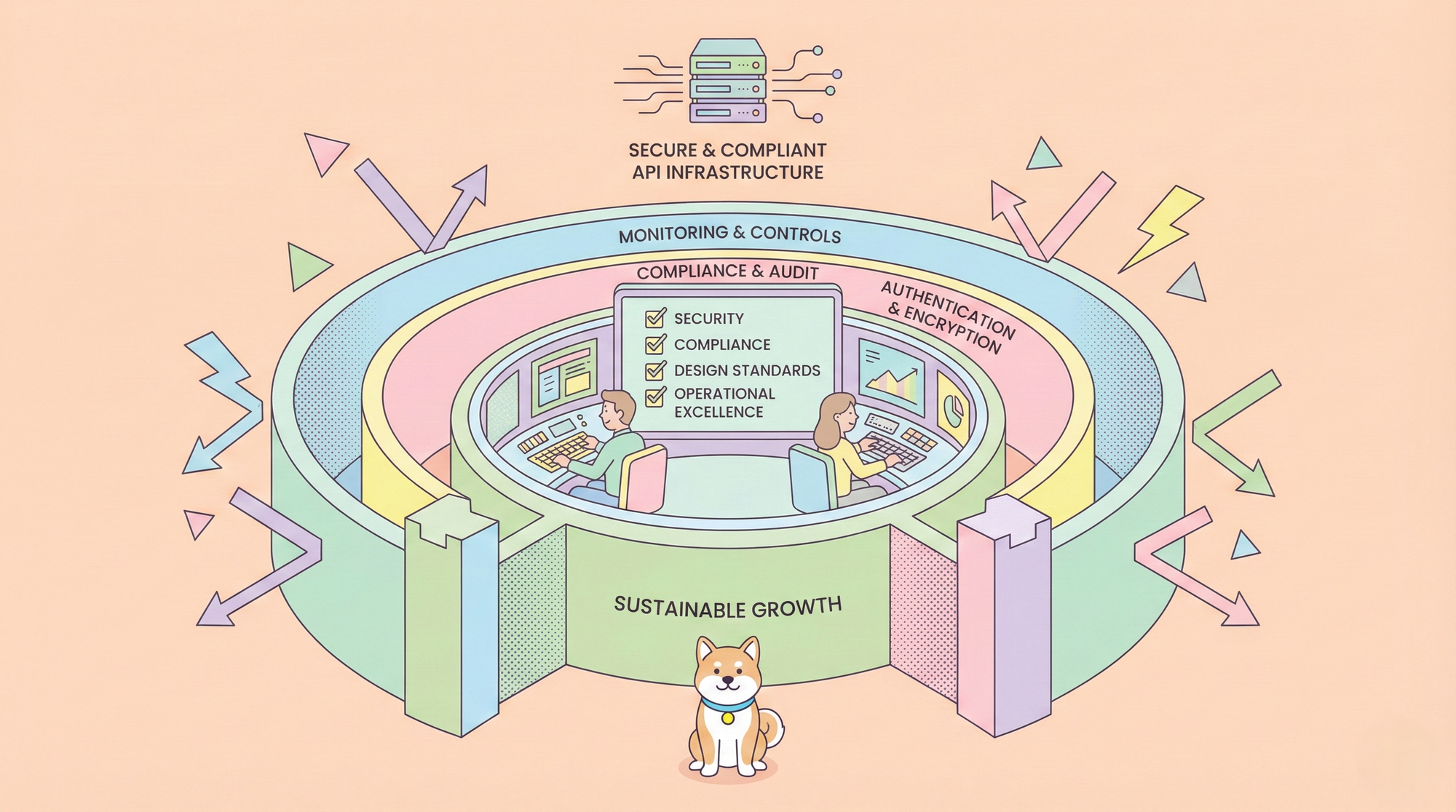BigCommerce has emerged as a powerful platform for businesses of all sizes. At the heart of its flexibility and extensibility lies its robust API ecosystem. These APIs enable developers to create custom solutions, integrate third-party services, and enhance the overall functionality of BigCommerce stores. In this comprehensive guide, we'll explore the 10 best BigCommerce APIs that can take your online store to the next level.

Understanding BigCommerce APIs
Before diving into the specific APIs, it's essential to understand what BigCommerce APIs are and how they work. BigCommerce APIs are sets of protocols and tools that allow different software applications to communicate with the BigCommerce platform. They enable developers to access and manipulate store data, create custom integrations, and extend the platform's functionality.
- Automate routine tasks
- Create unique features tailored to specific business needs
- Integrate with external systems and services
- Build headless commerce solutions
- Enhance the overall shopping experience
1. Catalog API: Manage Your Product Inventory with Ease
The Catalog API is undoubtedly one of the most powerful tools in the BigCommerce arsenal. This API allows developers to programmatically manage every aspect of a store’s product catalog.
Key features:
- Create, update, and delete products
- Manage product variants and options
- Handle categories and brands
- Update inventory levels in real-time
With the Catalog API, you can easily sync your BigCommerce store with external inventory management systems, ensuring that your product information is always up-to-date across all channels.
2. Orders API: Streamline Order Management
The Orders API is essential for businesses looking to automate their order processing workflows. This API provides comprehensive access to order data, allowing developers to build custom order management solutions.
Key features:
- Retrieve order details
- Update order statuses
- Process refunds
- Manage shipments
By leveraging the Orders API, you can create seamless integrations with fulfillment centers, accounting software, and customer relationship management (CRM) systems.
3. Customers API: Personalize the Shopping Experience
Understanding your customers is crucial for e-commerce success. The Customers API enables developers to access and manage customer data, paving the way for personalized shopping experiences.
Key features:
- Create and update customer profiles
- Retrieve customer order history
- Manage customer groups
- Handle customer addresses
With this API, you can build custom loyalty programs, personalized product recommendations, and targeted marketing campaigns.
4. Cart API: Customize the Shopping Cart Experience
The Cart API allows developers to create unique shopping cart experiences tailored to specific business needs. This API is particularly useful for headless commerce implementations.
Key features:
- Add and remove items from the cart
- Apply discounts and coupons
- Calculate taxes and shipping costs
- Retrieve cart contents
By utilizing the Cart API, you can build custom cart widgets, implement one-page checkouts, or create innovative shopping experiences across multiple devices.
5. Checkout API: Streamline the Purchase Process
The Checkout API enables developers to create custom checkout experiences, optimizing the final step of the customer journey.
Key features:
- Create and update checkout sessions
- Handle billing and shipping information
- Process payments
- Apply discounts and gift certificates
With this API, you can build streamlined, mobile-friendly checkout processes that reduce cart abandonment and increase conversions.
6. Payments API: Integrate Custom Payment Solutions
The Payments API allows developers to integrate custom payment solutions into BigCommerce stores, providing flexibility in how transactions are processed.
Key features:
- Process payments using various gateways
- Handle refunds and voids
- Manage stored payment methods
- Support multiple currencies
This API is particularly useful for businesses operating in multiple regions or those requiring specialized payment processing solutions.
7. Shipping API: Optimize Shipping Operations
The Shipping API enables developers to create custom shipping solutions, integrating with various carriers and fulfillment services.
Key features:
- Retrieve shipping rates
- Create and manage shipping zones
- Handle shipping options
- Generate shipping labels
By leveraging this API, you can build advanced shipping calculators, integrate with third-party logistics providers, and optimize your shipping operations.
8. Webhooks API: Build Real-Time Integrations
The Webhooks API allows developers to create event-driven integrations, enabling real-time communication between BigCommerce and external systems.
Key features:
- Subscribe to various store events
- Receive real-time notifications
- Automate workflows based on specific triggers
- Ensure data consistency across systems
With webhooks, you can build responsive applications that react immediately to changes in your BigCommerce store, such as inventory updates or new orders.

9. GraphQL Storefront API: Create Dynamic Shopping Experiences
The GraphQL Storefront API provides a flexible and efficient way to query store data, making it ideal for building dynamic, content-rich storefronts.
Key features:
- Efficient data querying
- Real-time product and inventory information
- Customer authentication
- Cart and checkout management
This API is particularly useful for headless commerce implementations, allowing developers to create unique frontend experiences while leveraging BigCommerce’s robust backend.

10. Scripts API: Enhance Store Functionality
The Scripts API allows developers to inject custom JavaScript into BigCommerce stores, enabling advanced customizations and integrations.
Key features:
- Add custom functionality to storefronts
- Integrate third-party services
- Modify checkout behavior
- Implement advanced analytics
With the Scripts API, you can extend the functionality of your BigCommerce store without modifying core theme files, ensuring easier maintenance and upgrades.

Integrating BigCommerce APIs with Apidog
While BigCommerce provides a powerful set of APIs, managing and testing these APIs can be a complex task. This is where tools like Apidog come into play. Apidog is a comprehensive API development and management platform that can significantly streamline your work with BigCommerce APIs.
Key benefits of using Apidog with BigCommerce APIs:
- API Documentation: Apidog provides a user-friendly interface for creating and managing API documentation, making it easier to collaborate with team members and understand API endpoints.
- API Testing: With Apidog, you can quickly test BigCommerce API endpoints, set up test environments, and automate API testing processes.
- Mock Servers: Apidog’s mock server functionality allows you to simulate BigCommerce API responses, enabling frontend development to proceed even if the backend isn’t fully ready.
- API Monitoring: Set up monitoring for your BigCommerce API integrations to ensure they’re functioning correctly and to quickly identify any issues.
- Team Collaboration: Apidog facilitates team collaboration on API projects, making it easier to work on complex BigCommerce integrations with multiple developers.
By using Apidog in conjunction with BigCommerce APIs, you can significantly improve your development workflow, reduce errors, and accelerate the implementation of new features and integrations for your online store.

Conclusion: Harnessing the Power of BigCommerce APIs
BigCommerce APIs offer a world of possibilities for customizing and extending your e-commerce platform. From managing your product catalog to optimizing your checkout process and implementing advanced pricing strategies, these APIs provide the tools you need to create a truly unique and powerful online store.
By leveraging these top 10 BigCommerce APIs and using tools like Apidog for API management, you can create seamless integrations, automate complex processes, and deliver exceptional shopping experiences to your customers. Whether you're a small business owner looking to streamline your operations or a large enterprise aiming to create a highly customized e-commerce solution, BigCommerce APIs have something to offer.
Remember, the key to success with BigCommerce APIs lies in understanding your specific business needs and creatively applying these APIs to solve real-world problems. So, dive in, experiment, and unlock the full potential of your BigCommerce store with these powerful APIs!



